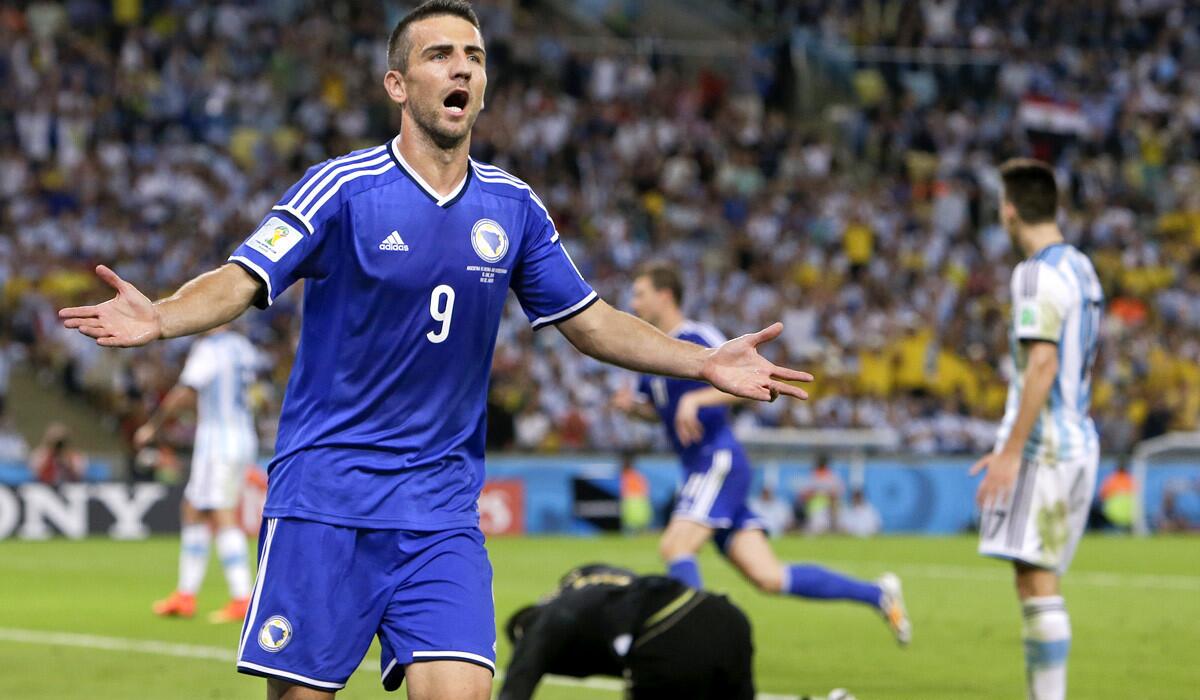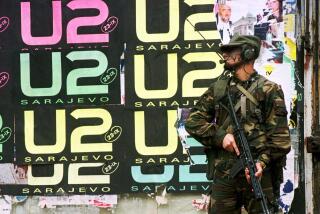Commentary: For Bosnia-Herzegovina, playing in World Cup is a victory

- Share via
Reporting from Mexico City — I love this season. In Mexico, as in much of Latin America, cities become paralyzed as seemingly everyone watches the games of the World Cup.
You walk through the streets of this capital of 20 million people, for example, and hear the collective shouts of “gollll” bursting from restaurants (every one with a flat-screen television), offices, car parks.
Sunday, though, I had a conflict. As much as I want the Latin American teams to do well (a bias I’m allowed because I’m not a sports reporter), I had to commit the near-sacrilege of not rooting for Argentina. Why? Because its opponent was a small country haunted by war making its debut in a World Cup: Bosnia-Herzegovina.
The war in Bosnia, fought from 1992 to 1995, came as part of the disintegration of the former Yugoslavia. It was vicious and eye-opening, venue of the deadliest atrocities in Europe since World War II, a conflict that gave us the term “ethnic cleansing” as Serbs wiped out Muslim Bosnians, Croats wiped out Serbs and so forth.
To see Bosnia, a country that only formed a little more than 20 years ago, appear in the World Cup under its new flag, a blue field of yellow stars, was the kind of gesture that can reaffirm a society’s identity and demonstrate its ability to be part of the world of nations. Normal. Whole. Like joining the European Union or receiving World Bank loans.
Not that troubles have ended in Bosnia. Ethnic tensions that became the currency of the earlier war still simmer, divisions having been sealed as part of the peace agreement that ended the conflict. Deadly riots over government corruption and joblessness erupted earlier this year, the worst violence since the war.
More than half the Bosnian soccer team debuting in the World Cup fled the country long ago, either during the war or in its aftermath. In Sarajevo, the Bosnian capital, the main soccer stadium became a principal burial ground for thousands of victims of battle, sniper fire, siege-imposed starvation.
In its opening match with powerhouse Argentina on Sunday, Bosnia acquitted itself, despite an early own-goal that put the Argentines in the lead. The score stayed that way until well into the second half, when Argentine star Lionel Messi and Bosnia’s Vedad Ibisevic landed goals.The final score was 2-1, for Argentina. For Bosnia, the victory was being there.







